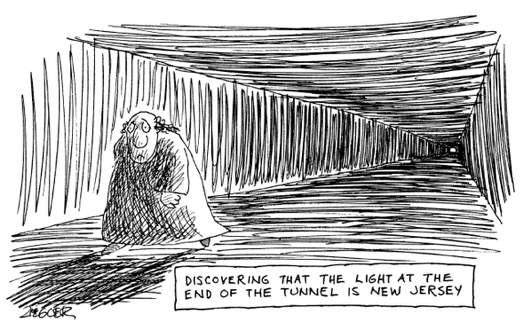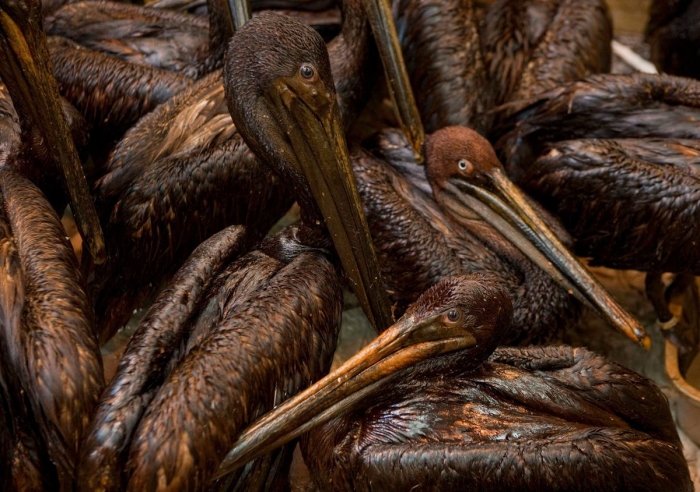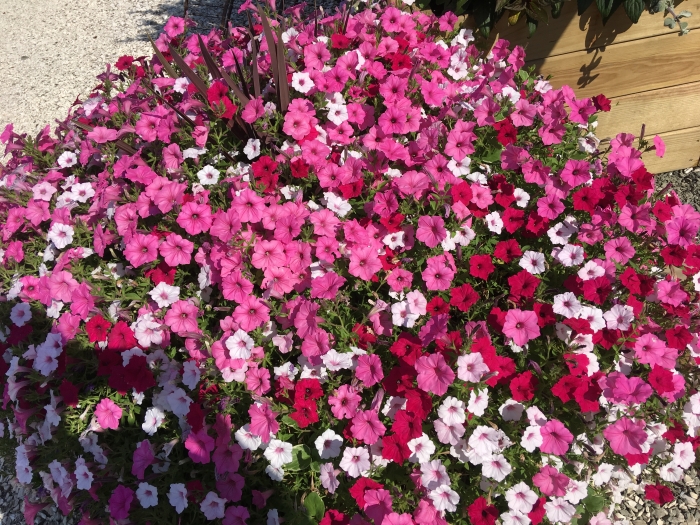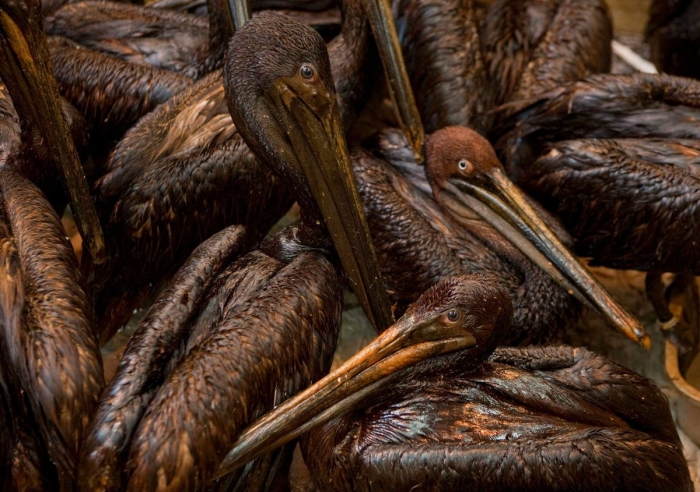Creatures in the news — winged, four-footed, cute or scary
These two lists just have to be some of the funniest photos I’ve seen in ages! The captions are just icing.
I’m almost nostalgic for the Nature shorts we used to see at the cinema when I was a small child - I’m sure someone could craft a whimsical 5 or 10 mins wonder out of them 
https://www.abc.net.au/news/2019-09-15/the-comedy-wildlife-photography-awards-2019/11513282
My, didn’t cat people already know this?
https://www.nytimes.com/2019/09/24/science/cats-humans-bonding.html
mtierney said:
https://www.nytimes.com/2019/09/03/opinion/dogs-spaying-neutering.html
Just when we all believed “fixing” our pets was a good thing!
It seems to me that the author is trying to apply the antivaxing ethos/mentality to pet ownership. What a crock of shinola!
Something beautiful, amid all the climate crisis news.
https://www.abc.net.au/news/2019-10-02/squid-egg-mass-great-barrier-reef-video/11566372
The photos of the squid’s tube of eggs are so lovely...such a pity the squid don’t live long.
Ancient proto-birds, but how cool is this find?! A pterosaur nicknamed Butch! 
https://www.abc.net.au/news/2019-10-04/new-pterosaur-flying-reptile-discovered-outback-queensland/11571756
You need to understand how far inland this discovery is, and how incredibly dustbowl-dry the place is now, to grasp the full significance of such large creatures feeding on fish. Winton is on the way to Mt Isa, in the crossover of grazing land to mining land, around 15hrs drive from here/Brisbane (state capital).
PENGUINS! Who doesn’t like penguin stories? And good guard dogs, happy puppies? They’re all here, working together:
https://www.abc.net.au/news/2019-10-17/middle-island-penguin-protector-oddball-maremma-retires/11607662
I think we’re re-watching Oddball tonight 
Is it animal, or vegetable?? And what do they mean it has 720 sexes???
https://www.abc.net.au/news/2019-10-17/paris-zoo-unveils-blob-organism-with-720-sexes/11610804
joanne said:
Is it animal, or vegetable?? And what do they mean it has 720 sexes???
https://www.abc.net.au/news/2019-10-17/paris-zoo-unveils-blob-organism-with-720-sexes/11610804
Just after reading your lovely sheepdog post, I opened this post!  Huge yellow slime?
Huge yellow slime? 
Ain’t nature grand!
That yellow slime mould is being considered for use in biocomputers, and in eco-switches for light and heating, so I wouldn’t knock it. It’s really quite a marvel, having been studied for quite a while yet no-one really knows ‘why’ (how) it came to be. Excellent proof for an unseen Creator?? 
Anyway, it’s time again for the annual Aussie Backyard Bird Count. (I love that there’s a personal twitter account called Twitchathon) We’re learning new things about the changes that heat and dry conditions create in habitats that have existed for centuries.
It’s not only in Texas that some things are bigger... 

https://www.abc.net.au/news/2019-10-24/curious-gippsland-giant-earthworm/11630320
Note: these earthworms are not to be confused with the extra-long and scary python reported last week.
Here's another for you  Honey, anyone?
Honey, anyone?
Amazing work, and quite brave considering the circumstances
I’m relieved (bad pun) that the whales are finding enough to eat, and are also continuing to enrich the food chain. The photography is amazing.
I’m just not sure how the pilot knows what the faeces smells like?? 
https://www.abc.net.au/news/2019-11-16/blue-whale-worlds-largest-animal-caught-on-camera-having-a-poo/11708368
mtierney said:
ED CONTRIBUTOR
In Zimbabwe, We Don’t Cry for LionsBy GOODWELL NZOU
AUGUST 4, 2015
Winston-Salem, N.C. — MY mind was absorbed by the biochemistry of gene editing when the text messages and Facebook posts distracted me.
So sorry about Cecil.
Did Cecil live near your place in Zimbabwe?
Cecil who? I wondered. When I turned on the news and discovered that the messages were about a lion killed by an American dentist, the village boy inside me instinctively cheered: One lion fewer to menace families like mine.Protesters have called for the death of the hunter who killed Cecil the lion.
My excitement was doused when I realized that the lion killer was being painted as the villain. I faced the starkest cultural contradiction I’d experienced during my five years studying in the United States.
Did all those Americans signing petitions understand that lions actually kill people? That all the talk about Cecil being “beloved” or a “local favorite” was media hype? Did Jimmy Kimmel choke up because Cecil was murdered or because he confused him with Simba from “The Lion King”?
In my village in Zimbabwe, surrounded by wildlife conservation areas, no lion has ever been beloved, or granted an affectionate nickname. They are objects of terror.
When I was 9 years old, a solitary lion prowled villages near my home. After it killed a few chickens, some goats and finally a cow, we were warned to walk to school in groups and stop playing outside. My sisters no longer went alone to the river to collect water or wash dishes; my mother waited for my father and older brothers, armed with machetes, axes and spears, to escort her into the bush to collect firewood.
A week later, my mother gathered me with nine of my siblings to explain that her uncle had been attacked but escaped with nothing more than an injured leg. The lion sucked the life out of the village: No one socialized by fires at night; no one dared stroll over to a neighbor’s homestead.
When the lion was finally killed, no one cared whether its murderer was a local person or a white trophy hunter, whether it was poached or killed legally. We danced and sang about the vanquishing of the fearsome beast and our escape from serious harm.
Recently, a 14-year-old boy in a village not far from mine wasn’t so lucky. Sleeping in his family’s fields, as villagers do to protect crops from the hippos, buffalo and elephants that trample them, he was mauled by a lion and died.
The killing of Cecil hasn’t garnered much more sympathy from urban Zimbabweans, although they live with no such danger. Few have ever seen a lion, since game drives are a luxury residents of a country with an average monthly income below $150 cannot afford.
Don’t misunderstand me: For Zimbabweans, wild animals have near-mystical significance. We belong to clans, and each clan claims an animal totem as its mythological ancestor. Mine is Nzou, elephant, and by tradition, I can’t eat elephant meat; it would be akin to eating a relative’s flesh. But our respect for these animals has never kept us from hunting them or allowing them to be hunted. (I’m familiar with dangerous animals; I lost my right leg to a snakebite when I was 11.)
The American tendency to romanticize animals that have been given actual names and to jump onto a hashtag train has turned an ordinary situation — there were 800 lions legally killed over a decade by well-heeled foreigners who shelled out serious money to prove their prowess — into what seems to my Zimbabwean eyes an absurdist circus.
PETA is calling for the hunter to be hanged. Zimbabwean politicians are accusing the United States of staging Cecil’s killing as a “ploy” to make our country look bad. And Americans who can’t find Zimbabwe on a map are applauding the nation’s demand for the extradition of the dentist, unaware that a baby elephant was reportedly slaughtered for our president’s most recent birthday banquet.
We Zimbabweans are left shaking our heads, wondering why Americans care more about African animals than about African people.
Don’t tell us what to do with our animals when you allowed your own mountain lions to be hunted to near extinction in the eastern United States. Don’t bemoan the clear-cutting of our forests when you turned yours into concrete jungles.
And please, don’t offer me condolences about Cecil unless you’re also willing to offer me condolences for villagers killed or left hungry by his brethren, by political violence, or by hunger.
Goodwell Nzou is a doctoral student in molecular and cellular biosciences at Wake Forest University.
Wow, what you have written is intense, and I’m listening. Although I certainly know that lions are predators, and I hear what you have shared, I wonder if it is common for lions to attack people, or does it happen with lions that have attacked people already and have learned that humans are easy prey? Do they get to that point out of hunger, exacerbated by a limited area for natural hunting grounds? Do you think that if they had enough room to live and hunt naturally that they would still go after humans as prey? If they had enough room to live and hunt the prey that they would ordinarily hunt, would they still opt for people? And then, if a lion, out of perhaps desperate hunger, attacks people, would that lion, just that lion, now be in the habit to do so again? Or do you feel that any lion would be ready to, and plan to, attack people and consider them to be no different than a buffalo or zebra even if that other type of prey was available? Of course you are talking about one lion at a time, and so I assume that would be a male lion, on his own, not a pride of lions i.e., females hunting together with purpose. Not to take anything away from your experience, and I didn't read anything before your post, and please forgive me if I insult you in any way, I'm just wondering if your experience could be balanced at all from a lion's perspective? After all, we all of us as living beings who inhabit this earth are just trying to survive within the limited resources that exist. I am asking if you believe the lion is an inherent danger to you because of the fact that he is a predator, or if he is a danger to you because his choices are limited by people's existence in his ancestral territory. This may be a moot point where you're concerned, but nonetheless, it should mean something about how you feel concerning how we as people who do not live with the everyday threat of lions feel about killing lions for sport.
mtierney said:
ED CONTRIBUTOR
In Zimbabwe, We Don’t Cry for LionsBy GOODWELL NZOU
AUGUST 4, 2015
Winston-Salem, N.C. — MY mind was absorbed by the biochemistry of gene editing when the text messages and Facebook posts distracted me.
So sorry about Cecil.
Did Cecil live near your place in Zimbabwe?
Cecil who? I wondered. When I turned on the news and discovered that the messages were about a lion killed by an American dentist, the village boy inside me instinctively cheered: One lion fewer to menace families like mine.Protesters have called for the death of the hunter who killed Cecil the lion.
My excitement was doused when I realized that the lion killer was being painted as the villain. I faced the starkest cultural contradiction I’d experienced during my five years studying in the United States.
Did all those Americans signing petitions understand that lions actually kill people? That all the talk about Cecil being “beloved” or a “local favorite” was media hype? Did Jimmy Kimmel choke up because Cecil was murdered or because he confused him with Simba from “The Lion King”?
In my village in Zimbabwe, surrounded by wildlife conservation areas, no lion has ever been beloved, or granted an affectionate nickname. They are objects of terror.
When I was 9 years old, a solitary lion prowled villages near my home. After it killed a few chickens, some goats and finally a cow, we were warned to walk to school in groups and stop playing outside. My sisters no longer went alone to the river to collect water or wash dishes; my mother waited for my father and older brothers, armed with machetes, axes and spears, to escort her into the bush to collect firewood.
A week later, my mother gathered me with nine of my siblings to explain that her uncle had been attacked but escaped with nothing more than an injured leg. The lion sucked the life out of the village: No one socialized by fires at night; no one dared stroll over to a neighbor’s homestead.
When the lion was finally killed, no one cared whether its murderer was a local person or a white trophy hunter, whether it was poached or killed legally. We danced and sang about the vanquishing of the fearsome beast and our escape from serious harm.
Recently, a 14-year-old boy in a village not far from mine wasn’t so lucky. Sleeping in his family’s fields, as villagers do to protect crops from the hippos, buffalo and elephants that trample them, he was mauled by a lion and died.
The killing of Cecil hasn’t garnered much more sympathy from urban Zimbabweans, although they live with no such danger. Few have ever seen a lion, since game drives are a luxury residents of a country with an average monthly income below $150 cannot afford.
Don’t misunderstand me: For Zimbabweans, wild animals have near-mystical significance. We belong to clans, and each clan claims an animal totem as its mythological ancestor. Mine is Nzou, elephant, and by tradition, I can’t eat elephant meat; it would be akin to eating a relative’s flesh. But our respect for these animals has never kept us from hunting them or allowing them to be hunted. (I’m familiar with dangerous animals; I lost my right leg to a snakebite when I was 11.)
The American tendency to romanticize animals that have been given actual names and to jump onto a hashtag train has turned an ordinary situation — there were 800 lions legally killed over a decade by well-heeled foreigners who shelled out serious money to prove their prowess — into what seems to my Zimbabwean eyes an absurdist circus.
PETA is calling for the hunter to be hanged. Zimbabwean politicians are accusing the United States of staging Cecil’s killing as a “ploy” to make our country look bad. And Americans who can’t find Zimbabwe on a map are applauding the nation’s demand for the extradition of the dentist, unaware that a baby elephant was reportedly slaughtered for our president’s most recent birthday banquet.
We Zimbabweans are left shaking our heads, wondering why Americans care more about African animals than about African people.
Don’t tell us what to do with our animals when you allowed your own mountain lions to be hunted to near extinction in the eastern United States. Don’t bemoan the clear-cutting of our forests when you turned yours into concrete jungles.
And please, don’t offer me condolences about Cecil unless you’re also willing to offer me condolences for villagers killed or left hungry by his brethren, by political violence, or by hunger.
Goodwell Nzou is a doctoral student in molecular and cellular biosciences at Wake Forest University.Wow, what you have written is intense, and I’m listening. Although I certainly know that lions are predators, and I hear what you have shared, I wonder if it is common for lions to attack people, or does it happen with lions that have attacked people already and have learned that humans are easy prey? Do they get to that point out of hunger, exacerbated by a limited area for natural hunting grounds? Do you think that if they had enough room to live and hunt naturally that they would still go after humans as prey? If they had enough room to live and hunt the prey that they would ordinarily hunt, would they still opt for people? And then, if a lion, out of perhaps desperate hunger, attacks people, would that lion, just that lion, now be in the habit to do so again? Or do you feel that any lion would be ready to, and plan to, attack people and consider them to be no different than a buffalo or zebra even if that other type of prey was available? Of course you are talking about one lion at a time, and so I assume that would be a male lion, on his own, not a pride of lions i.e., females hunting together with purpose. Not to take anything away from your experience, and I didn't read anything before your post, and please forgive me if I insult you in any way, I'm just wondering if your experience could be balanced at all from a lion's perspective? After all, we all of us as living beings who inhabit this earth are just trying to survive within the limited resources that exist. I am asking if you believe the lion is an inherent danger to you because of the fact that he is a predator, or if he is a danger to you because his choices are limited by people's existence in his ancestral territory. This may be a moot point where you're concerned, but nonetheless, it should mean something about how you feel concerning how we as people who do not live with the everyday threat of lions feel about killing lions for sport.
Thank you for your insights. I would like to claim Nzou as my animal totem and my mythological ancestor. I wish I could.
Thought you'd all love this different take on Working Dogs
https://www.abc.net.au/life/dogs-bringing-joy-and-comfort-to-workplaces/11691654
Happy story for the day!! 
Save the bees!
If we have between 3 and 20 years of honey scarcity coming, has anyone checked what's going on with your domestic honey situation? You've had mites, heat, storms, prolonged fires...
All about loving....
About laughter...
mtierney said:
I get my honey at Costco, so I am good for three years
an ugly sentiment.
There are real monsters.
NYT: A Trump Policy ‘Clarification’ All but Ends Punishment for Bird Deaths
Good to keep the terrible damage being done in the public eye. Nothing will wash the oil from these poor dying creatures.
If you can’t find compassion on this day, of all days, when will you ever find it?
Rentals
-
Huge Brand New construction Apartment in 2 family home with 4 bedrooms 3 bathrooms
4 Bd | 3Full Ba
$4,500
Employment Wanted
Latest Jobs
Employment Wanted
-
Apr 19, 2024 at 9:42am
-
Amazing Housecleaning available call! (201) 889-5521
Apr 18, 2024 at 12:40pm
-
Apr 18, 2024 at 11:17am
-
Apr 17, 2024 at 6:35pm
-
Administrative Assistant/REMOTE-Part Time
Apr 17, 2024 at 1:19pm
Help Wanted
-
NPF509 FT Nanny/Family Assistant for Twins (ASAP Flex)
Apr 19, 2024 at 12:38pm
-
CF582 FT Nanny/Family Assistant for 2 (Late May Start)
Apr 19, 2024 at 12:18pm
-
SF5001 FT Nanny for 2 (ASAP Start)
Apr 19, 2024 at 12:02pm
-
Full-Time / Part Time Nanny Needed
Apr 19, 2024 at 11:51am
-
MF519 PT Nanny for 1 (ASAP Start)
Apr 18, 2024 at 5:23pm






















https://www.nytimes.com/2019/09/03/opinion/dogs-spaying-neutering.html
Just when we all believed “fixing” our pets was a good thing!